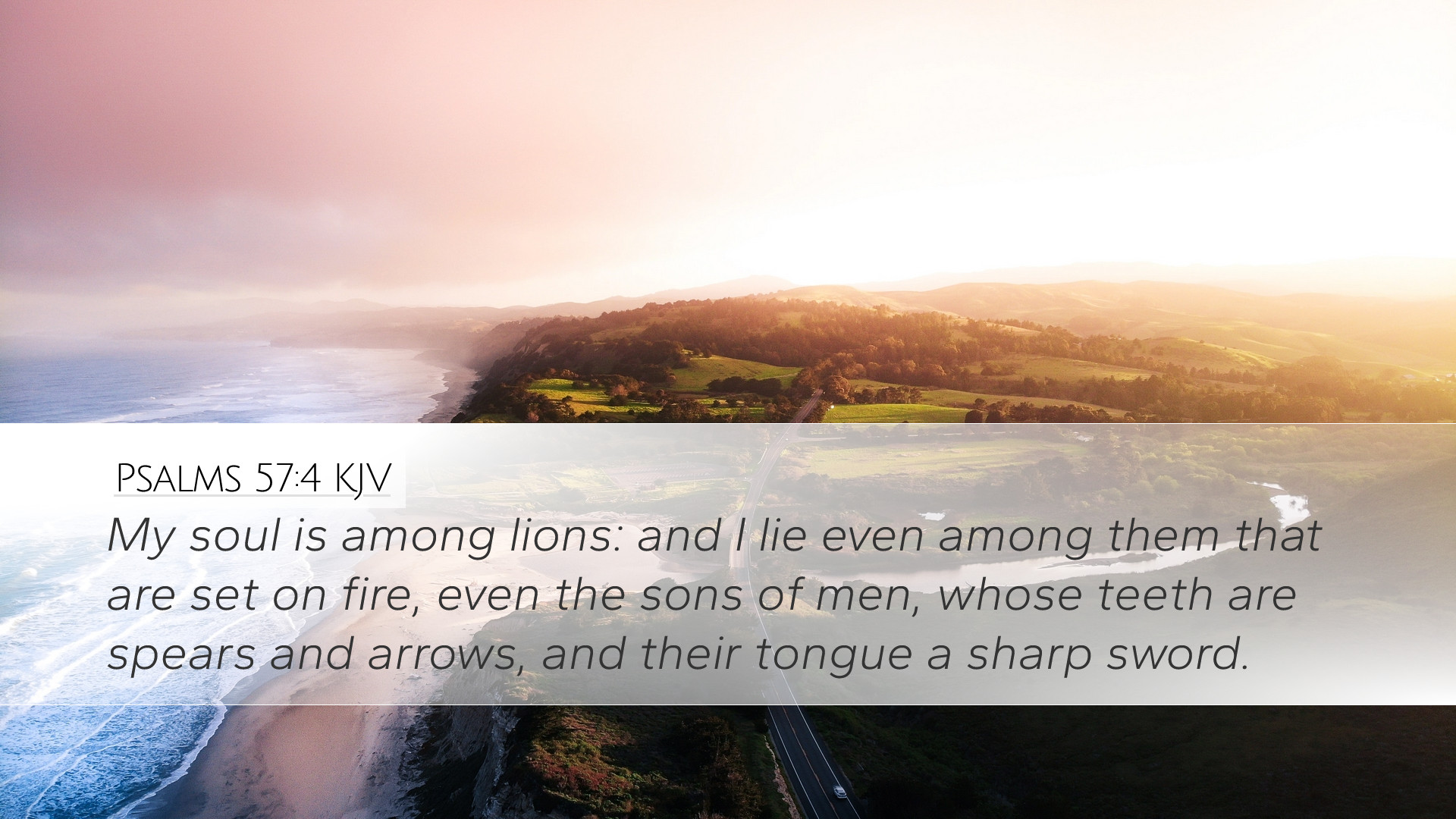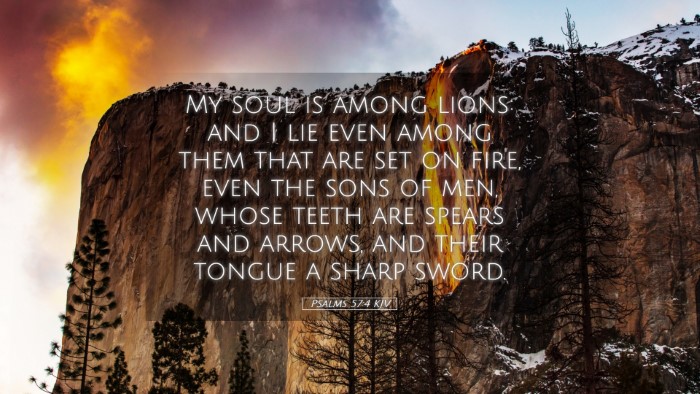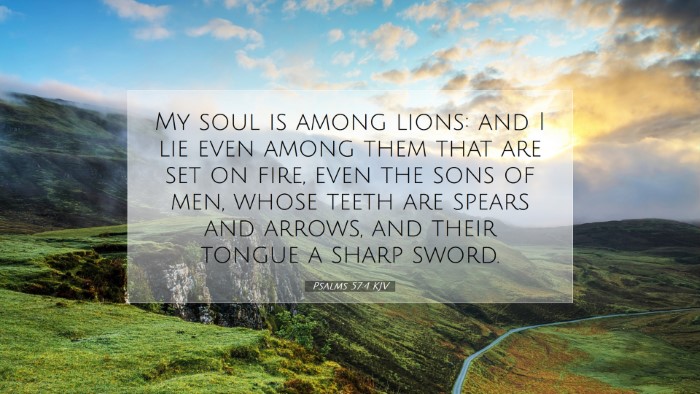Commentary on Psalms 57:4
Psalms 57:4 states: "My soul is among lions: and I lie even among them that are set on fire, even the sons of men, whose teeth are spears and arrows, and their tongue a sharp sword."
Contextual Overview
This verse is part of David's prayer while he was hiding from Saul in the cave. The imagery of lions and fiery spirits reflects the intense danger David faced from his enemies, which can symbolize both physical threats and spiritual trials. The human foes are depicted as ferocious beasts equipped with weapons of destruction, emphasizing the perilous state of David’s situation.
Insights from Matthew Henry
Matthew Henry notes the emotional and spiritual anguish of David, likening the adversity he experiences to being surrounded by beasts. He draws a parallel between the lions and the fierce men pursuing David. For Henry, this verse exhibits the dual aspects of fear and faith, revealing that while David acknowledges his peril, he simultaneously lifts his eyes to God for deliverance. He describes David's soul being distressed as an honest reflection of the believer's encounters with overwhelming challenges.
Albert Barnes' Perspective
Albert Barnes provides a literary analysis of the verse, highlighting the figurative language employed by David. He elucidates that the "lions" symbolize malevolent individuals that threaten to devour the righteousness found in the faithful. Barnes further elaborates on the latter part of the verse, where the sharpness of their speech is compared to "spears and arrows," illustrating the impact of words as weapons capable of inflicting deep spiritual wounds. He urges readers to understand that David's reference to his plight is not merely a call for divine intervention but also an indication of the strength he derives from his relationship with God amid turmoil.
Adam Clarke's Commentary
Adam Clarke emphasizes the vivid imagery, explaining that the “sons of men” can represent wicked men who are unrestrained in their hostility. Clarke captures the essence of David's feeling of isolation among foes and his lamentation for divine rescue. He remarks on the duality of human nature, capable of both noble and base tendencies, with a further theological insight that amidst such trials, God remains an ever-present protector and refuge. Clarke's interpretation reinforces the theme of divine faithfulness in the midst of human intimidation.
Theological Implications
This verse encapsulates a profound theological truth regarding the nature of suffering and divine retreat. It reveals that confrontation with malevolent forces is an expected aspect of faith. Pastors and theologians can glean from this that God does not promise an absence of trials, but rather His presence amidst them. This verse encourages believers to vocalize their struggles, acknowledging the pain while simultaneously centering their trust in God’s sustenance and restoration.
Practical Applications
- Emotional Honesty: Like David, individuals should recognize the necessity of expressing their grief and struggles honestly before God.
- Trust in God’s Protection: Believers are reminded that despite the threats posed by the world, God remains their protector, ready to offer refuge.
- Impact of Words: The dangers of speech are highlighted—both in how others speak against the faithful and in the caution believers must take to speak words of life rather than destruction.
- Context of Fellowship: This passage can encourage communal support among believers, who may feel alone among adversaries.
Conclusion
Psalms 57:4 serves as a poignant reminder of the battles faced by the faithful in both the physical and spiritual realms. The amalgamation of historical context, lyrical poetry, and theological significance presents a rich tapestry for understanding God's role amid adversity. As one meditates on this verse, it becomes critical to draw strength from God, knowing that while one may appear surrounded by lions, the ultimate victory is rooted in the steadfastness of faith and the assurance of divine protection.


